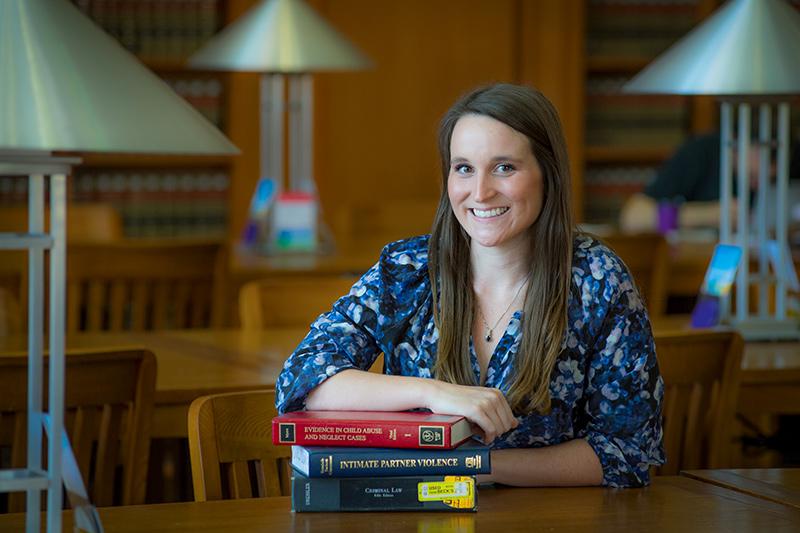Law student honored for 744 hours of pro bono work
A Tulane Law School third-year student will receive the 2018 Louisiana State Bar Association Law Student Pro Bono Award for her work on behalf of indigent clients.
Kirby Kenny, who has donated 744 hours of free legal work during her three years as a law student, will receive the award at the Louisiana Supreme Court on May 22.
As an undergraduate at the University of Georgia, Kenny volunteered at the Boys & Girls Club and the public defenders’ office in Athens, Georgia, where she saw first-hand how the parents of some of the same children were overlapping with her work in the criminal justice system. At Tulane, she worked for Innocence Project New Orleans and the Capital Post-Conviction Project through the LSBA.
“I’ve always been passionate about indigent defense...”
Kirby Kenny, third-year law student
“I’ve always been passionate about indigent defense, but this internship taught me to want to bring systematic changes in the criminal justice system,” said Kenny, who has worked on cases where defendants were wrongfully convicted or sentenced to the death penalty.
Kenny spent the last two summers tracking down witnesses, searching for former prosecutors and defense attorneys in cases involving wrongfully convicted men serving life sentences as well as others spending the rest of their lives on death row in Angola State Penitentiary.
Kenny said one case last summer brought the law to life for her. She got to know Robert Jones, who was living at the Innocence Project office while his case was under review. Jones, who was wrongfully convicted in the killing of a British tourist and the rape of a woman in a French Quarter crime spree in 1992 would spend more than 23 years in prison before being exonerated in January 2017.
“He was there all the time. I learned about his life, met his family,” she said. “When I got the news that the DA was not going to pursue a new case, I was so happy. To think that someone who had spent more than half his life in the confines of a prison was now free. . . it was overwhelming.”


